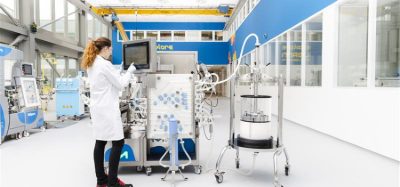Under the microscope with Gareth Jenkins from AMRI
Posted: 20 February 2013 | European Pharmaceutical Review | No comments yet
Founded in 1991, AMRI (Albany Molecular Research Inc.) is a contract research and manufacturing organisation, with locations in the US, Europe and Asia. The company provides fully integrated drug discovery, development and manufacturing services to the pharmaceutical and biotechnology industries.


“For specifications, ICH Q6 offers very clear guidance on specification change throughout clinical development on the types of test required and the provision of decision trees to assist the process,” explains Jenkins. “The purpose of a specification is to assure the quality, safety and efficacy of the drug material. At a commercial level, specifications detailing parameters that are deemed important as a basis of control can be established utilising the wealth of data that has been generated from the development process and stability testing, ensuring that meaningful parameters with data-driven limits can be established.
“In development, it’s important to consider that specifications are an evolving document. Firstly, regulatory guidance is clear on some items that must be controlled and included on a specification. Beyond this, it is important to consider the evolution of the specification based on the parameters learned as important as process knowledge increases. The specification’s evolution should demonstrate strong alignment between process capability and efficacy/patient safety and finally, while data-driven limits are of great value, one also has to be mindful of hard limits linked to toxicological information.”
With analytical methods, regulatory guidance is clear that at the point of established process, methods should be validated in accordance with the requirements of ICH Q2. “At points prior to this in the development process, the guidance is not definitive,” Jenkins says. “However, interpretation of the guidance and execution as part of IND / CTA application will need to assure the appropriate levels of control and an assurance of safety and efficacy. At Phase III, analytical methodology needs to assure absolute certainty in the data generated. During Phase II, a degree of certainty may be considered acceptable, whereas at Phase I, and with appropriate justification, a degree of confidence may be sufficient. In practice, how any particular method is validated to achieve these goals is individual to each molecule and each test methodology and the application of scientifically rigor remains fundamental. AMRI’s SMARTSOURCING™ approach to Process Validation represents this knowledge evolution by defining a point in the CMC framework where the manufacturing process becomes fixed and sets out a roadmap of process development and validation based on the Critical Quality Attributes of the API driven from robust analytical methodology.”
While there are benefits in maintaining active material as pure as possible, as early as possible to best represent final purity profiles and afford greater opportunity to assess stability from a starting point more representative of intended material quality, the counter is that controlling the process to reproduce higher impurity levels may offer an advantage in understanding the degradation pathways of the active on stability and also provide enhanced toxicological information and assurance, which may allow more greatly informed decisions to be made as development progresses, Jenkins explains. “The main advantage here is that early in development, details of the final manufacturing process may be non-optimised so assuring qualification and toxicological coverage of process related impurities can be invaluable. Collaboration between safety, analytical and chemical development, which has the best interests of the final API supply chain in mind and synchronises route changes with safety studies is of great value.”
“In the scenario where separate batches for preclinical safety studies and Phase I clinical supply are manufactured, this provides a rapid supply of material into preclinical testing; provides an opportunity to develop / extend process knowledge and also provides some early indications of API stability and degradation pathways. The disadvantage may be the subsequent requirement to then quickly supply GMP material for the clinic, as this may be one of the only stages of development where rapid and more abundant supply is heavily time dependant.”
“Where preclinical safety batches and Phase I supply are combined, the disadvantage discussed above is overcome,” Jenkins says. “You can generate an enhanced shelf life for clinical development and therefore add more information into an IND/CTA, and of course the impurity profiles for each study are the same. The disadvantage is that the requirement to apply GMP manufacturing standards may add more time at the preclinical stage, with the requirements of GMP manufacture clearly requiring a greater investment in planning and execution. A variation of this approach is to produce a larger preclinical safety batch under non-GMP conditions and divert, (one or more stages back ) a small quantity into GMP material. Factors that can influence the time and costs associated with these approaches include the balance of quantities needed for preclinical versus clinical, the availability of raw materials and the efficiency of effort required to complete the manufacture.” Founded in 1991, AMRI (Albany Molecular Research Inc.) is a contract research and manufacturing organisation, with locations in the US, Europe and Asia. The company provides fully integrated drug discovery, development and manufacturing services to the pharmaceutical and biotechnology industries.








